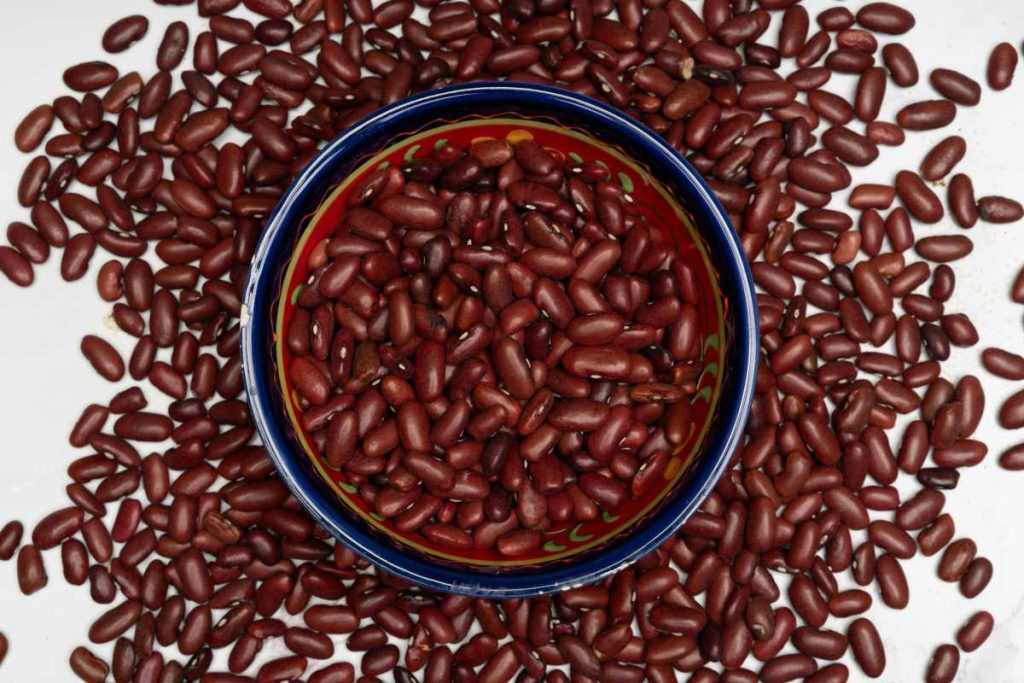Red kidney beans are a popular legume known for their rich taste, versatility, and exceptional nutritional profile. These beans are packed with protein, fiber, vitamins, and minerals, making them an excellent addition to a balanced diet. Beyond their delicious flavor, kidney beans offer numerous health benefits that can support your overall well-being. Let’s explore eight key benefits of including red kidney beans in your diet.
1. Excellent Source of Plant-Based Protein
Red kidney beans are a fantastic source of plant-based protein, making them an excellent choice for vegetarians and vegans. Protein is essential for:
- Building and repairing tissues.
- Supporting muscle health.
- Promoting satiety, helping with weight management.
2. High in Dietary Fiber
Kidney beans are rich in both soluble and insoluble fiber, which is beneficial for digestive health. Fiber helps:
- Promote regular bowel movements.
- Prevent constipation.
- Feed healthy gut bacteria, supporting a balanced microbiome.
3. Supports Heart Health
The combination of fiber, potassium, and magnesium in kidney beans makes them heart-friendly. These nutrients help:
- Lower cholesterol levels, reducing the risk of heart disease.
- Regulate blood pressure by balancing sodium levels.
- Improve overall cardiovascular health.
4. Stabilizes Blood Sugar Levels
Kidney beans have a low glycemic index and are high in fiber, which helps slow the absorption of sugar in the bloodstream. This makes them an excellent choice for people with diabetes or those looking to prevent blood sugar spikes.
5. Rich in Antioxidants
Kidney beans contain powerful antioxidants, including polyphenols, which help fight free radicals in the body. This reduces oxidative stress, lowers inflammation, and protects cells from damage, potentially reducing the risk of chronic diseases like cancer and diabetes.
6. Aids in Weight Management
With their high protein and fiber content, kidney beans promote feelings of fullness, helping you manage your appetite and control calorie intake. Their complex carbohydrates also provide long-lasting energy, preventing overeating.
7. Supports Bone Health

Kidney beans are a source of essential minerals like calcium, magnesium, and phosphorus, which contribute to strong and healthy bones. Including kidney beans in your diet can help prevent conditions like osteoporosis.
8. Improves Brain Function
Rich in B vitamins, especially folate, kidney beans support cognitive function and mental clarity. Folate is essential for producing neurotransmitters, while the iron in kidney beans promotes oxygen transport to the brain, improving concentration and memory.
How to Add Kidney Beans to Your Diet
Red kidney beans are incredibly versatile and can be used in a variety of dishes, such as:
- Soups and stews (e.g., chili con carne).
- Salads and grain bowls.
- Curries and rice dishes.
- Bean-based dips or spreads.
Precautions
Raw kidney beans contain a compound called phytohemagglutinin, which can be toxic if not cooked properly. To avoid this, always soak kidney beans overnight and cook them thoroughly before consuming.
Conclusion
Red kidney beans are a powerhouse of nutrition, offering numerous health benefits ranging from improved digestion to better heart and brain health. Incorporating these nutrient-dense legumes into your meals can help you maintain a balanced diet and support overall well-being. Whether you’re making soups, curries, or salads, kidney beans are a delicious and nutritious choice.

